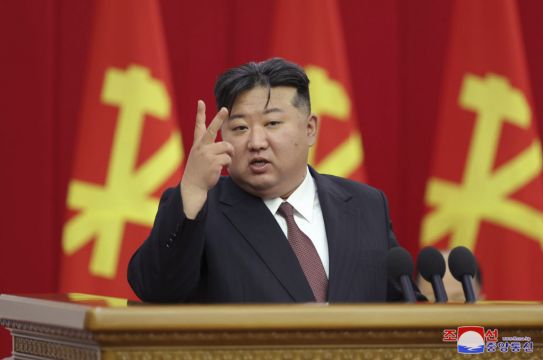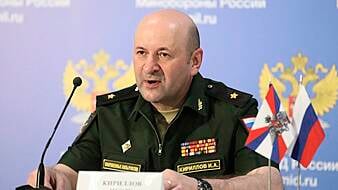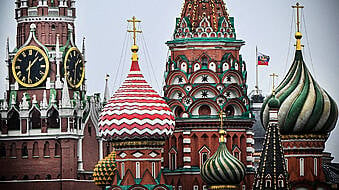The United States joined Ukraine and South Korea this week to accuse North Korea of dispatching troops, estimated to number in the thousands perhaps, to aid Russia in the war in Ukraine.
The vast majority of those troops are still in Russia, the countries have said, and Washington said their final destination and role in the conflict remains to be seen.
Both Moscow and Pyongyang have denied the claims.
Here is what we know so far.
What are the reports?
Ukraine's president Volodymyr Zelenskiy accused North Korea of deploying officers in Russian-occupied territory and preparing to send as many as 12,000 soldiers to help Moscow's war effort.
“I believe they sent officers first to assess the situation before deploying troops,” Mr Zelenskiy told reporters.
South Korea's National Intelligence Service (NIS) said the North had shipped 3,000 troops, including special forces, to Russia's Far East for training and acclimatising at military bases there, probably to be deployed for combat in the war.
The South also said it had used AI facial recognition technology to identify a delegation of dozens of North Korean officers visiting frontline areas in Ukraine, to give guidance on North Korea-made KN-23 ballistic missiles fired at targets there.
The delegation included a key figure in the North's missile development, identified by analysts at Seoul-based NK PRO as Ri Song Jin, glimpsed in photographs last year while accompanying leader Kim Jong Un to factories that turn out missiles.
Vessels of Russia's Pacific Fleet were detected moving the North Korean special forces troops to Vladivostok from October 8th to 13th and are expected to resume that effort soon, the NIS said.
The troops have been supplied with Russian military uniforms, weapons and false identification documents ahead of being deployed for combat, it said.
Why would North Korea help Russia?
Russian president Vladimir Putin has said a treaty he signed with Kim Jong Un during a visit to Pyongyang in June included a mutual assistance clause for each side to help the other repel external aggression.
Analysts say North Korea could benefit from providing weapons and troops by gaining experience and insight from operating on a battlefield.
Pyongyang, heavily sanctioned for its nuclear weapons programme, also appears to be gaining major imports of oil and other products from Russia, according to foreign intelligence agencies and commercial satellite imagery examined by analysts.
A report by a think tank affiliated with South Korea's NIS estimated that the cash-strapped North earned about $540 million last year from arms sales to Russia.
What has the reaction been?
A Kremlin spokesman dismissed reports of North Korean troops in Ukraine as "fake news" and a North Korean representative to the United Nations in New York called them "groundless rumours".
On Monday, South Korea said it had protested the deployment to Russia's ambassador.
Seoul has also said it is considering phased countermeasures, including possible changes to its stance against directly providing weapons to Ukraine.
Germany and Austria summoned North Korea's top envoys in their countries on Wednesday to register their concerns.
The leaders of Britain and Finland have said Russia's use of North Korean troops would be a sign of desperation.
What challenges do North Korean troops present to Ukraine?
Russia has fired dozens of North Korea-made ballistic missiles and has received large numbers of artillery shells and anti-tank rockets, say South Korea, Ukraine, the United States and independent researchers.
Military analysts say there are questions on how Russia would incorporate North Korean troops on the ground, and that, like the weapons, an infusion of troops would be unlikely to be a game changer but could help prolong the conflict.
"Russia's war zone has expanded significantly, and with Ukrainian forces making advances even into Russian territory, North Korean troops could play role in defending against such incursions," said Kim Yong-hyun, of South Korea's Dongguk University. "While North Korea's involvement may not be decisive for Russia, it could still provide meaningful support."







